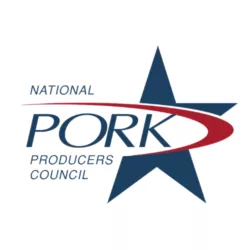Surge in Small-Refinery Petitions Granted in Past Four Years
In calendar year 2017 (largely for the 2016 RFS compliance year), EPA began granting a large number of petitions for extensions of Small Refinery Exemptions (SREs). By 2018, the number of SREs issued for the 2017 compliance year was more than quadruple the number issued for the 2015 compliance year. For example, for the 2015 compliance year, only 290 million renewable identification numbers (RINs) were not retired due to SRE petitions granted, yet for the 2017 compliance year, that number grew to 1.82 billion non-retired RINs. The large increase in SRE petitions granted and associated unretired RINs represents a significant decline in the required use of renewable fuel volumes, which in turn decreased the incentives for the production and use of renewable fuels.
Tenth Circuit’s Decision
In January 2020, the Tenth Circuit vacated and remanded three EPA decisions granting SRE petitions for the 2016 and 2017 RFS compliance years which were issued in calendar years 2017 and 2018, holding that a small refinery’s petition can be granted only if the refinery satisfies two conditions:
- Demonstrate an existing exemption: Emphasizing the dictionary definitions of the word “extension” as “an increase,” the court held that EPA could not extend or increase a small refinery’s exemption unless the exemption was “in existence.” In the court’s view, “a small refinery which did not seek or receive an extension in prior years is ineligible for an extension, because at that point there is nothing to prolong, enlarge, or add to.” The court also described CAA section 211(o)(9)(b)(i) as “funnel[ing] small refineries towards compliance over time.”
- Demonstrate disproportionate economic hardship caused by RFS compliance: The court held that any alleged hardship justifying the grant of an SRE petition must be “caused by” RFS compliance. The court also held that EPA had acted arbitrarily and capriciously by deviating, without acknowledgment or a stated reason, from its prior position that refineries generally do not incur disproportionate economic hardship from purchasing RINs on the open market because the refineries “pass through most or all of their RIN purchase costs” to their customers.
Supreme Court Case and EPA’s Position
On January 8, 2021, the U.S. Supreme Court granted the small refineries’ petition for a writ of certiorari asking the Court to review the Tenth Circuit’s holding regarding the SRE eligibility of small refineries that lack an existing exemption. HollyFrontier Cheyenne Refining, LLC, et al. v. Renewable Fuels Assn., et al., United States Supreme Court, Case No. 20-472.
After further, careful review of the RFA Decision following the change of Administration, EPA has reevaluated the statutory text and now agrees with the Tenth Circuit’s reading of CAA section 211(o)(9)(B)(i) that an exemption must exist for EPA to be able to “extend” it. EPA agrees with the court that the exemption was intended to operate as a temporary measure and, consistent with that Congressional purpose, the plain meaning of the word “extension” refers to continuing the status of an exemption that is already in existence.




